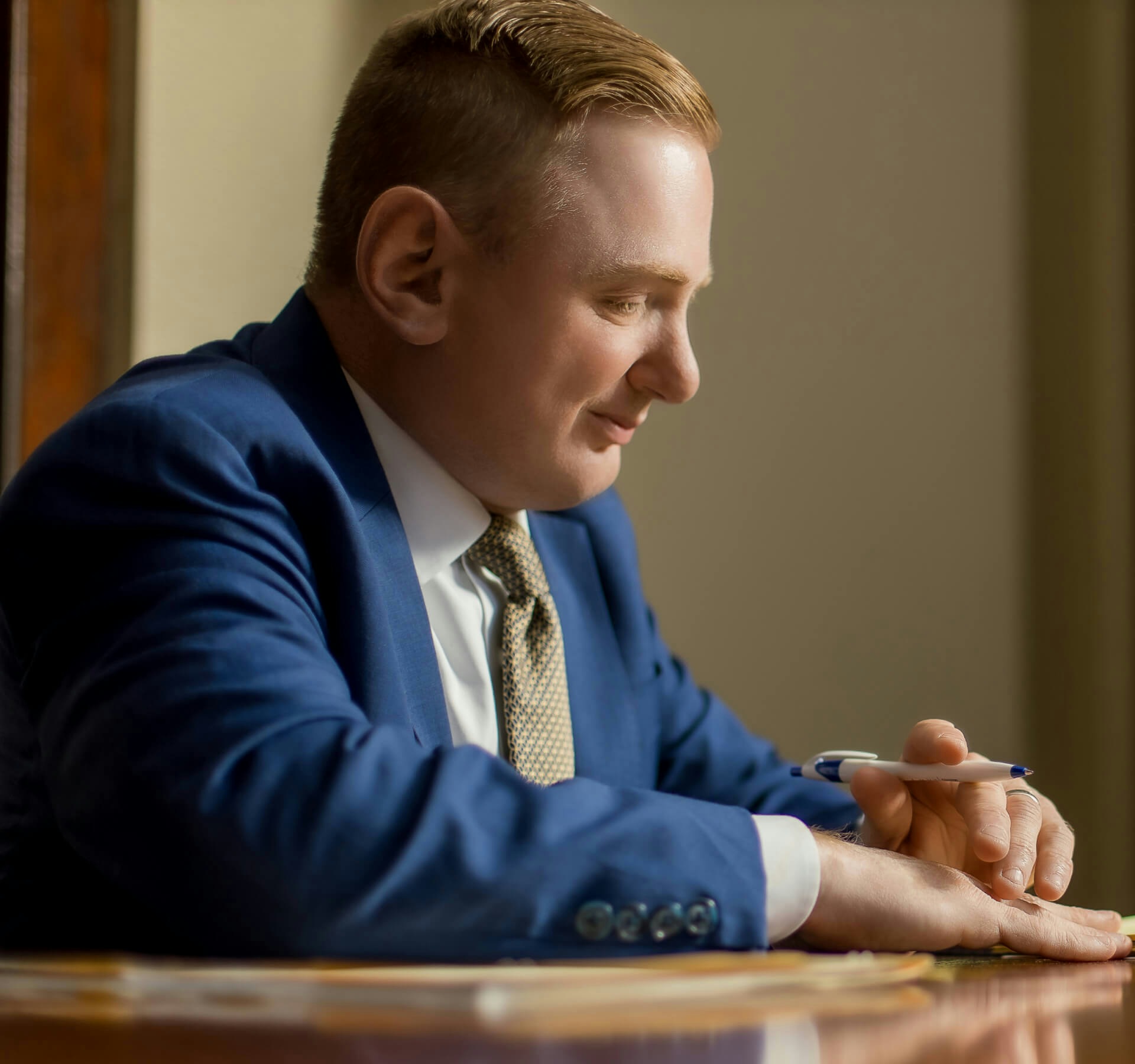Massachusetts is one of the strictest states when it comes to DUI laws and penalties. Unlike some states, Massachusetts never scrubs DUIs off a person's record. It will stay on record for life.
How Can I Avoid a DUI on My record?
Having a DUI on your record for life could seriously impact your ability to get hired, attend universities or colleges, receive lower car insurance rates, and even drive. However, DUIs only start showing up on record when a driver is convicted or assigned to an alcohol treatment program.
If you have been charged with a DUI, contact an experienced defense attorney immediately to avoid having a DUI on your record. Being “charged” with a DUI means that you still have time to defend yourself and avoid being guilty of a DUI. Do not wait until it is too late.
First Offense DUIs
First offense DUIs have a greater chance of staying off your permanent record because it is the first time that you have been charged for driving under the influence. A lawyer can speak on your behalf and represent your best interests in a courtroom.
All cases are different, but an experienced lawyer will work hard to reduce your DUI charge to a less serious charge, allowing it to avoid being permanently placed on your record.
Second Offense OUI/DUI Alternative Disposition
If you have been charged with a 2nd offense OUI/DUI, but your previous charge was more than 10 years ago, you may qualify for the Cahill disposition. This means that 2nd offenders who have not had a previous DUI/OUI charge in over 10 years have a chance to reduce their penalties to that of a 1st offense.
Even with the Cahill disposition, your 2nd offense will still stay on your criminal record in Massachusetts. However, it may result in a lighter probation period as long as the court gives you the 24D program, which involves a one-year probation period, court-ordered substance abuse treatment, and a license suspension of 45 to 90 days.
Can a DUI Affect My Ability to Get a Job?
Although Massachusetts has some of the strictest laws when it comes to DUI/OUI charges, they also protect your rights to apply for a job and help you avoid getting penalized by hiring companies.
In Massachusetts, employers must ask permission to conduct a background check, and they cannot ask about your criminal record or criminal history within your application. Additionally, employers determine your ability to be hired based on the following:
- Arrests without a conviction
- Misdemeanors over 5 years old
- First convictions of minor infractions
- Sealed court records
- Juvenile records
Employers are allowed to ask about felonies and recent misdemeanors (or misdemeanors under 5 years old). Most 1st and 2nd offense DUIs are considered misdemeanors, while 3rd offenses and subsequent are considered felonies.
Are There Any Jobs I Can't Hold Because of My DUI Record?
Licensed professionals may get their license suspended or revoked because of a DUI conviction during the time that they are employed. If you are training to become a licensed professional, a DUI conviction may prevent you from obtaining that license.
Having a DUI on record could prevent you from getting hired in the following job positions:
- Police office
- Healthcare worker
- Public transportation and commercial driver
- Any position working directly with children
- Military positions
- Real estate and insurance agent
- Lawyer
- Any position within public office
If you are in the middle of a trial or are awaiting trial, you may still apply for these positions. Under Massachusetts law, you are innocent until proven guilty despite your DUI/OUI charge.
What job positions may a DUI conviction prevent individuals from getting hired in?
A DUI conviction may prevent individuals from getting hired in various job positions, including police officers, healthcare workers, public transportation and commercial drivers, any position working directly with children, military positions, real estate and insurance agents, lawyers, and any position within public office. The presence of a DUI on their record can raise concerns about their reliability and ability to perform their duties responsibly.
How does a DUI conviction affect those training to become licensed professionals?
A DUI conviction can have a significant impact on individuals who are training to become licensed professionals. It may prevent them from obtaining the license they are seeking, as a DUI conviction can raise concerns about their character and ability to fulfill the responsibilities of their chosen profession.
In what specific job positions may a DUI conviction be viewed as a violation of codes of conduct?
A DUI conviction may be viewed as a violation of codes of conduct in various job positions. Some examples include positions in public office, healthcare where the care of others is involved (such as healthcare workers or social workers), law and law enforcement (lawyers, judges, and police officers), transportation (bus drivers, taxi drivers, and commercial drivers), military positions, and positions involving childcare and working directly with children.
What are the potential consequences for licensed professionals with a DUI conviction?
The potential consequences for licensed professionals with a DUI conviction include probation periods and the possibility of having their license suspended or revoked. These consequences can significantly impact their ability to continue practicing in their respective fields.
How does a DUI conviction affect the ability of licensed professionals to renew their license?
A DUI conviction may greatly affect the ability of licensed professionals, such as nurses, commercial drivers, insurance professionals, and real estate professionals, to renew their license. It may result in probation periods or the suspension or revocation of their license.
What are the rights of a job applicant with a DUI conviction?
Can employers ask about recent misdemeanors?
Employers can ask if an applicant has been convicted of, or released from, incarceration for a misdemeanor that doesn't fall under the restrictions mentioned earlier (such as arrests without conviction, first convictions of minor infractions, misdemeanors over five years old, sealed court records, or juvenile records). Recent misdemeanors can be considered by employers when making hiring decisions.
Can employers ask about felony convictions?
Yes, employers can ask if an applicant has ever been convicted of a felony. This information can be considered in the hiring process.
What impact can a DUI conviction have on job positions?
A DUI conviction can have an impact on certain job positions in Massachusetts. For example, it may prevent individuals from being hired as police officers, healthcare workers, public transportation and commercial drivers, positions working directly with children, military positions, real estate and insurance agents, lawyers, or positions within public office. Having a DUI on record could be a disqualifying factor for these positions.
What specific restrictions apply to employers when asking about an applicant's criminal history?
Employers in Massachusetts have several restrictions when asking about an applicant's criminal history. They cannot ask about arrests that did not lead to a conviction, the first conviction of OUI/DUI , simple assault, or other specific minor infractions, misdemeanors that are five years old, sealed court records, or juvenile records. These restrictions are in place to protect job applicants.
What kind of criminal record information can employers ask about on written applications?
Employers cannot ask about any kind of criminal record information on written applications in Massachusetts.
What types of positions may view a DUI conviction as a violation of codes of conduct?
A DUI conviction may be seen as a breach of codes of conduct in various types of positions. Some examples include:
- Public office: The presence of a DUI on an individual's record may be viewed as a violation of the high standards and ethical behavior expected in public office positions.
- Healthcare and social work: Jobs that involve the care of others, such as healthcare workers and social workers, may consider a DUI conviction as a potential risk to the well-being and safety of their patients or clients.
- Law and law enforcement: Professions within the legal system, such as lawyers, judges, and police officers, typically have strict standards of integrity and responsibility. A DUI conviction can be seen as a disregard for the law and may undermine the credibility and trustworthiness required in these roles.
- Transportation: Roles that involve driving, such as bus drivers, taxi drivers, and commercial drivers, often require individuals to maintain a clean driving record. A DUI conviction could be seen as a breach of safety protocols and may jeopardize the trust placed in these professionals to transport others safely.
- Military: The armed forces uphold high standards of discipline and personal conduct. A DUI conviction might be viewed as a violation of these principles and can affect one's suitability for certain military positions.
- Childcare and working directly with children: Jobs involving the care and supervision of children demand individuals who demonstrate responsibility and good judgment. A DUI conviction may raise concerns about an individual's ability to make reliable choices and maintain a safe environment for children.
It is important to note that employers have the right to inquire about convictions related to the specific job being applied for, and a DUI conviction may have different implications depending on the position sought.
Draeger 9510 Alcotest
If you were convicted of a DUI in the state of Massachusetts between 2011 and 2019, you may have a legal case to reopen that case.
According to the Eagle Tribune, more than 27,000 drivers convicted of DUIs between June, 2011 and April, 2019 received notices of improperly calibrated breath test machines during the time they were charged with a DUI.
Contact Gilman Law P.C. if you were convicted of a DUI between 2011 and 2019. Our attorneys can determine if you have a case to get your conviction vacated. During our consultation, we will help you determine what your next legal steps are.


